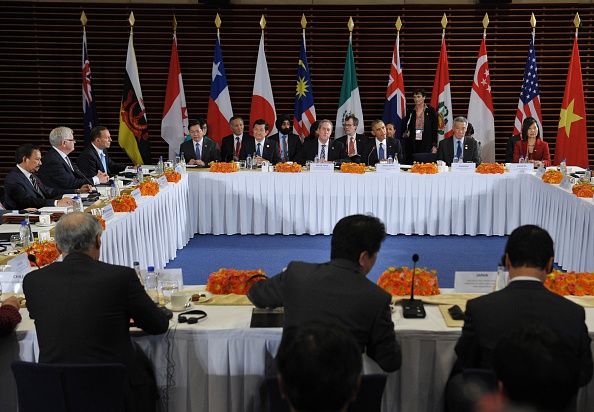Canadian copyright activists are urging Trudeau’s Liberal government to formally reject a portion of the Trans-Pacific Partnership concerning intellectual property rights that could cost consumers millions and leave them saddled with lawsuits or copyright infringement fines.

The final text of the TPP deal released Thursday aims to synchronize copyright laws between the 12 Pacific Rim countries – including Canada and the United States.
Under the agreement Canada would make several changes to its copyright laws including extending protections on original works from the current 50 years beyond the death of the author, to 70.
OpenMedia, a Vancouver based digital-rights advocacy group, said the change promotes the interests of copyright holders and corporations over the interest of the public.
“This is going to cost Canadians a lot of money,” said Josh Tabish, OpenMedia’s Campaigns Manager. “Estimates as high as a $110 million a year could be imposed on the economy because these works are getting trapped under these repressed copyright rules.”
- Budget 2024 failed to spark ‘political reboot’ for Liberals, polling suggests
- Peel police chief met Sri Lankan officer a court says ‘participated’ in torture
- Wrong remains sent to ‘exhausted’ Canadian family after death on Cuba vacation
- Liberals having ‘very good’ budget talks with NDP, says Freeland
READ MORE: Canadians can now read the full text of the Trans-Pacific Partnership trade deal
Other concerns over the deal include threats to privacy, internet services providers blocking websites, and criminal penalties for ripping CDs or even uploading animated GIFS.
Tabish condemned the lack of consultation from the public and lack of transparency surrounding TPP.
Trudeau had criticized the secrecy surrounding the deal’s negotiations during the election and promised a full and open debate in parliament about the TPP, which accounts for an estimated 40 per cent of the world’s economy.
Chrystia Freeland, the newly appointed minister of international trade, said while the Liberal government believes in trade she is still reviewing the agreement.
“What we really want is a period for Canadians to become familiar with this agreement,” Freeland told reporters Thursday. “The other commitment is we are committed to have a full parliamentary debate about the TPP.”
READ MORE: Liberals, NDP turn down TPP briefing, accusing Conservatives of political ploys
The pact, which was finalized on Oct. 5, had shut out consumer organizations and advocacy groups during the negotiations. The hundreds of pages of the final text were posted to the website of the New Zealand Foreign Ministry Thursday morning, with Canada following suit hours later.
Law professor and copyright expert Michael Geist said the 20 year copyright extension would deal a massive blow to Canadian heritage as dozens of fiction and non-fiction books set to enter the public domain would be on hold until 2037.
Some of these works are taught in classrooms across the country and include The Stone Angel by Margaret Laurence, The Gutenberg Galaxy by Marshall McLuhan and several titles by John Steinbeck.
Geist said changes could have a “significant” impact on students and educators
“These were all books that were scheduled to enter into the public domain in Canada,” said Geist. “It would mean an increase in availability, a reduced price in those looking to buy, and even greater flexibility in how they can be used and disseminated.”
“The public’s access to its history to its culture and some of the great literature will really be diminished and undermined for a period of time,” he said.
Privacy Concerns
As more personal information is stored online, there’s concern about the possibility it could be transferred to countries “with lesser standards of privacy protection,” Geist said.
The TPP includes provisions to protect the “free flow of information across borders” and “prevents governments in TPP countries from requiring the use of local servers for data storage.”
The provinces of B.C. and Nova Scotia, have passed laws to keep some personal information like health data, on local servers, Geist said
“Governments collect huge amounts of health information and if it gets outsourced or sent to the U.S., is it more vulnerable given what we know about surveillance activities there,” said Geist.




Comments